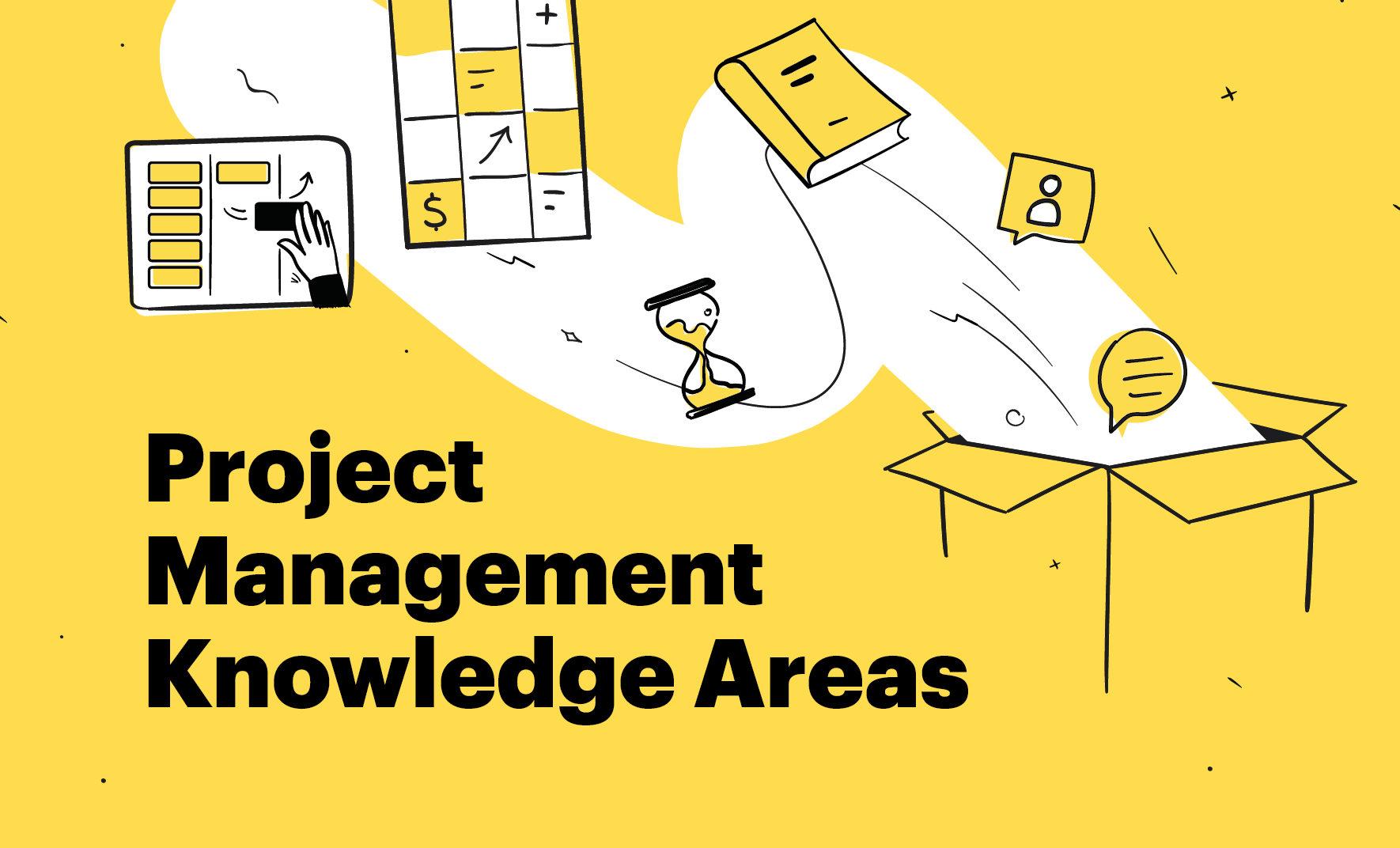The 10 Project Management Knowledge Areas You Should Know About

For those of you, who are new to project management, the term “project management knowledge areas” might be new. But don’t worry, the PM’s bible PMBOK has a great definition: “A Knowledge Area represents a complete set of concepts, terms, and activities that make up a professional field, project management field, or area of specialization.”
To understand the term even better, let’s discuss it in a bit more detail.
PMBOK is a set of standards and guidelines, and the project management knowledge areas are part of these standards: a project manager should have knowledge in certain areas, in order to do their job more efficiently. Project management knowledge areas, on the other hand, are connected to the 5 project management process groups: initiation, planning, execution, monitor and control.
The knowledge areas link up the professional fields that a project manager has to operate in to complete a project.

The 10 Main Project Management Knowledge Areas
Project management knowledge areas help to systemize and prioritize project management processes, which is key to successfully leading projects. Knowing about costs, schedules, risk, and resource management helps you manage each stage of a project with confidence.
1. Project Integration Management
The first is relates to coordinating tasks, resources, stakeholders, and managing conflicts.
Having knowledge in this area will help you create a project charter in the initiation phase of a project. It means it will give you techniques to create a project management plan in the planning phase. Integration management also relates to the other phases as follows: knowing how to direct and manage project work in the execution phase, and knowing how to perform integrated change control and control project work during the monitoring and control phase. During the closing processes, project integration knowledge will help you know what to do in order to close a project.
2. Project Scope Management
It relates to determining and documenting the list of all the project goals, tasks, deliverables, deadlines, and budget as a part of the planning process.
Project Scope Management comes into play only in the planning and monitoring phases. Respectively, it helps in planning and defining the scope management and knowing how to create WBS( Work Breakdown Structure) and what it is. During the Monitoring and controlling processes, scope management provides you with the necessary knowledge of validating and controlling scope.
3. Project Schedule Management
The listing of activities, deliverables, and milestones within a project.
This knowledge area gives you the tool and techniques to plan schedules, estimate activities and durations and of course, define activities. Not in the last place, having knowledge about schedule management will help you control schedules and know how to make adjustments if there are deviations.
4. Project Cost Management
Project Cost Management is concerned with planning and estimation of costs, determining a budget, and controlling the costs throughout the project’s life cycle.
5. Project Quality Management
It ensures the efficiency and effectiveness of all project activities necessary to design, plan and implement a project.
Project Quality Management covers the planning of quality, managing, and controlling it.
6. Project Resource Management
The process of pre-planning, scheduling, and allocating your resources to maximize efficiency.
A project manager will need to have knowledge of how to acquire resources, develop a team and manage it. They will also need to plan resources and estimate the activities for them.
7. Project Communications Management
Sums up all the necessary actions related to project data: collecting, storing, creating, and distributing.
This project management knowledge area focuses on information – messages and documents – how to create, design, version control and store them.
8. Project Risk Management
A project manager would have to know how to manage risk in projects. Therefore, they will need to know how to identify risks, perform qualitative risk analysis and plan risk responses. During the execution phase of a project, a project manager will know how to implement risk responses, thanks to knowledge in the area of risk management.
9. Project Stakeholder Management
For this project management knowledge area, the project manager will identify the stakeholders, plan their engagement, manage and monitor it.
10. Project Procurement Management
Similar to the previous area, the project manager will define, plan, implement, control and transition an activity from a current to a future state.
To sum it up, the PMBOK main project management knowledge areas are a great way to start, but not an exclusive list. Sometimes you may have to draw another professional skill in order to manage your project, like leadership. No matter the case, getting familiar with the main 10, will help build a solid ground for running projects.
Final words
In conclusion, the project management knowledge areas represent the core technical knowledge a manager should have in order to successfully lead projects. It’s all about insight rather than action. This is exactly why the PMKAs cover the things you need to know (managing costs, schedules, risks, resources, quality, etc.), while the process groups cover the things you need to do: initiate, plan, execute, monitor, and close a project.
In the meantime, you can check also our other project management related articles: